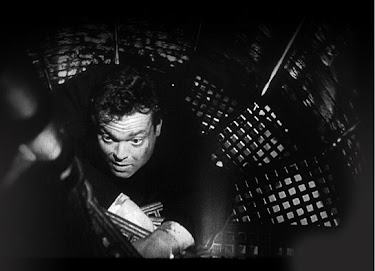Written by: Graham Greene (novel & screenplay), Terrence Ratigan (writer)
Starring: Richard Attenborough, Carol Marsh, Hermione Baddeley, William Hartnell, Harcourt Williams, Wylie Watson
In John Boulting's adaptation of a Graham Greene novel, Richard Attenborough plays small-time gang-leader Pinkie Brown, a young man with a rough temper and a paranoid mean-streak. After he murders a police informer, Pinkie happens upon a young waitress (Carol Marsh) who could shatter his alibi if she wanted to. Unable to silence her without risking arrest, Pinkie instead tries to seduce the girl, who naively falls head over heels for the man who'd like to put a bullet in her.
Greene's trademark wryness is present in a tense opening act that sees a desperate newspaper employee (hired as Kolley Kibber, a variation of the Lobby Lud character) pursued through the streets of Brighton. Rarely have bustling crowds of people felt so ominous: how can this man hope to escape detection if, in a sardonic twist, an entire readership is looking out for him? Pinkie eventually murders the man during a carnival horror ride, escaping into the throngs of oblivious day-trippers. The man in which such a heinous crime is swallowed by the clamour of everyday life recalls Dassins The Naked City (1948) and that wonderful reverse dolly shot in Hitchcock's Frenzy (1972).


This sequence is one of several – including the climax upon a foggy ocean pier – whose sheer atmosphere is intense enough to rival the very best noir efforts of Jules Dassin {Night and the City (1950)} and Carol Reed {Odd Man Out (1947); The Third Man (1949)}. Unfortunately, unlike these better films, Brighton Rock (1947) lacks a consistent tone. Director Robert Boulton is skillful at building a strong atmosphere, but intermittent interruptions from Hermione Baddeley's brassy amateur sleuth (accompanied by her own jaunty theme tune) shift the mood from that of a grim British noir to a frivolous Miss Marple outing.
Though Richard Attenborough is a small, unintimidating actor, he somehow uses his slight stature to his advantage. Like a wily mutt, his Pinkie Brown has a ferocious bark, and a bite to match. In stories of this sort, it is typical for the villain to be softened, if only slightly, by the affections of a pretty lady. Nothing of the sort happens here. Pinkie, whose sexual urges are seemingly exhausted in his lust for power, woos and weds waitress Rose purely as an exercise in self-preservation. The young woman's devotion to such a cold-blooded crook is pathetic and heartbreaking, a tragic metaphor for thousands of women trapped in loveless and abusive marital unions.
7/10
Currently my #10 film of 1947:
1) Odd Man Out (Carol Reed) *
2) The Ghost and Mrs. Muir (Joseph L. Mankiewicz)
3) Monsieur Verdoux (Charles Chaplin)
4) Out of the Past (Jacques Tourneur) *
5) Dark Passage (Delmer Daves) *
6) The Lady from Shanghai (Orson Welles) *
7) They Won’t Believe Me (Irving Pichel) *
8) The Web (Michael Gordon) *
9) The Fugitive (John Ford, Emilio Fernández)
10) Brighton Rock (John Boulting) *





_poster.jpg)


1 comment:
Hi! Andrew,
Nice (interesting) review...even though I have never watched Graham
Greene's Brighton Rock.
I like your "honest" opinion approach too!
Thanks, for sharing!
DeeDee ;-D
Post a Comment